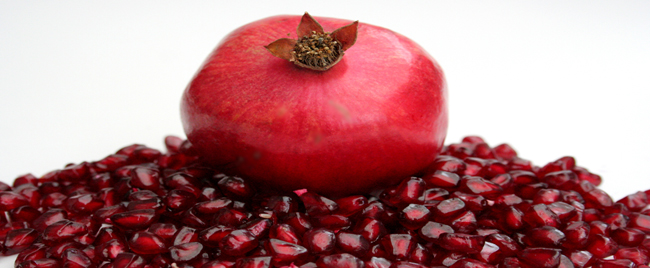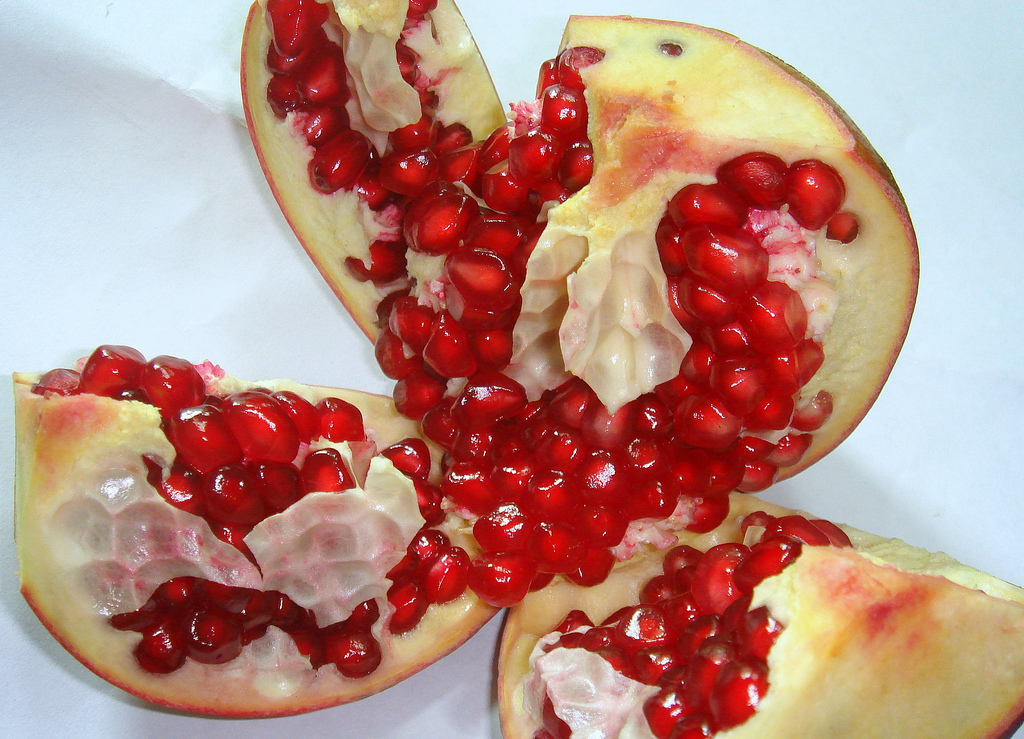Uses & Medicinal Purposes
Pomegranates are utilized in many ways. They are a
source of food for people throughout the world as well as animals
that inhabit their natural environments. The fruit is grown in mass
quantities
and sold commercially in many countries. California, Spain, and
Turkey are the world's leading producers of pomegranates. Although
pomegranates are more commonly used as ornamental decorations in the
United States, they are a traditional food in many Middle Eastern
countries. In these areas, they are consumed in great numbers.
The fresh arils from inside the fruit may be eaten plain or
incorporated into countless
recipes. However, the pomegranate is most frequently consumed as
juice.
Grenadine, a popular syrup used in mixed drinks, is a product of
Punica granatum. Although some grenadine is concocted using
cherry juice, the syrup is traditionally made with the juice of
pomegranates.
Some other uses for Punica granatum are not as well known.
For example, pigments from the bark of the tree and rind of the
fruit are used as dyes.

The pomegranate is considered to be a “superfruit” due to its variety of health-promoting agents. Pomegranate fruit contains high levels of antioxidants; in fact, one serving of pomegranate yields even more antioxidants than red wine and green tea! It is one of the most antioxidant-rich foods known to exist. Antioxidants provide many positive services toward overall health.
While the consumption of fresh pomegranate fruit is beneficial, the extract yields intensified positive effects. It is used as an anti-inflammatory agent due to its relieving effects of swelling. Additionally, compounds present in pomegranate extract have shown the ability to restrict enzymes from destroying cartilage. This finding could lead to great advances in new ways to treat osteoarthritis. Further study is underway.
Recent studies have shown that pomegranates have positive effects on cardiovascular disease. They have been linked to reducing high blood pressure and promoting ideal blood flow. Atherosclerosis is a major factor of cardiovascular disease in which arterial walls experience plaque build-up, inflammation, and become dysfunctional. Pomegranate consumption has been linked with the prevention and possibly even reversal of this problem. Pomegranates are also beneficial for diabetics. Studies show that compounds present in pomegranates have the ability to lower a spike in blood sugar levels following a meal.
A link has been found between pomegranates and a declining growth rate of prostate cancer. Although research is still currently in progress and no definite results have been proven, it is possible that pomegranates may be an aiding factor in the fight against many forms of cancer.
Alkaloids, which are present in the rind and bark of the tree, are an effective way to detach tapeworms from the intestinal wall. In cooperation with laxatives, these are used to rid the parasites from the human body.
Pomegranate juice is linked to healthy gums and a reduction in cavities. It has a plaque-fighting agent and is therefore incorporated into some varieties of mouthwash.
Pomegranates may potentially be a protection factor of human skin from ultraviolet radiation.
Research is in progress to learn more about the medicinal advantages pomegranates have to offer. Although they are relatively uncommon in the United States, they possess "superfruit" powers that just may be the secret to a healthy lifestyle. To discover delicious ways to incorporate this healthful food into your diet, explore the RECIPES displayed on this site.


